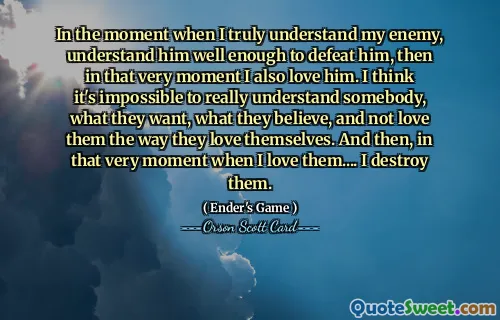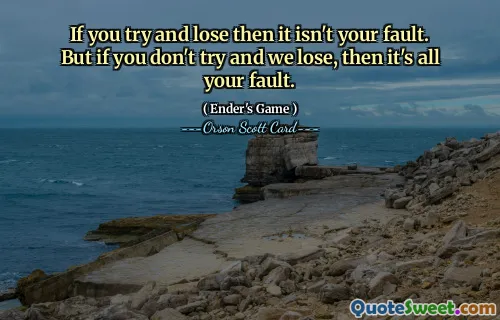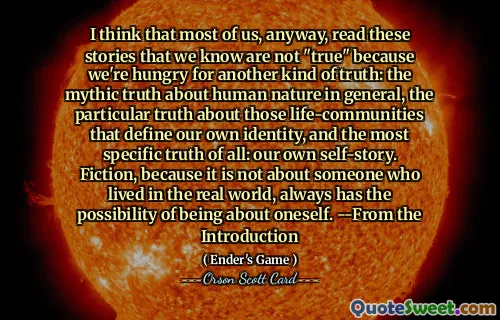
Fiction, because it is not about somebody who actually lived in the real world, always has the possibility of being about oneself.
Fiction, by its nature, allows for a level of introspection and personal connection that is often not found in non-fiction. Since fictional characters and scenarios are not bound to the constraints of reality, readers can see elements of themselves reflected in the stories. This openness invites the audience to explore their own thoughts, feelings, and experiences through the lens of the narrative, creating a deeper engagement with the material.
In Orson Scott Card's "Ender's Game," this concept is particularly poignant. The journey of Ender Wiggin, a character navigating a complex and challenging universe, serves as a medium through which readers can examine their own struggles, decisions, and growth. The distance from real-life events allows for a unique exploration of personal identity, making fiction a powerful tool for self-discovery and understanding.











